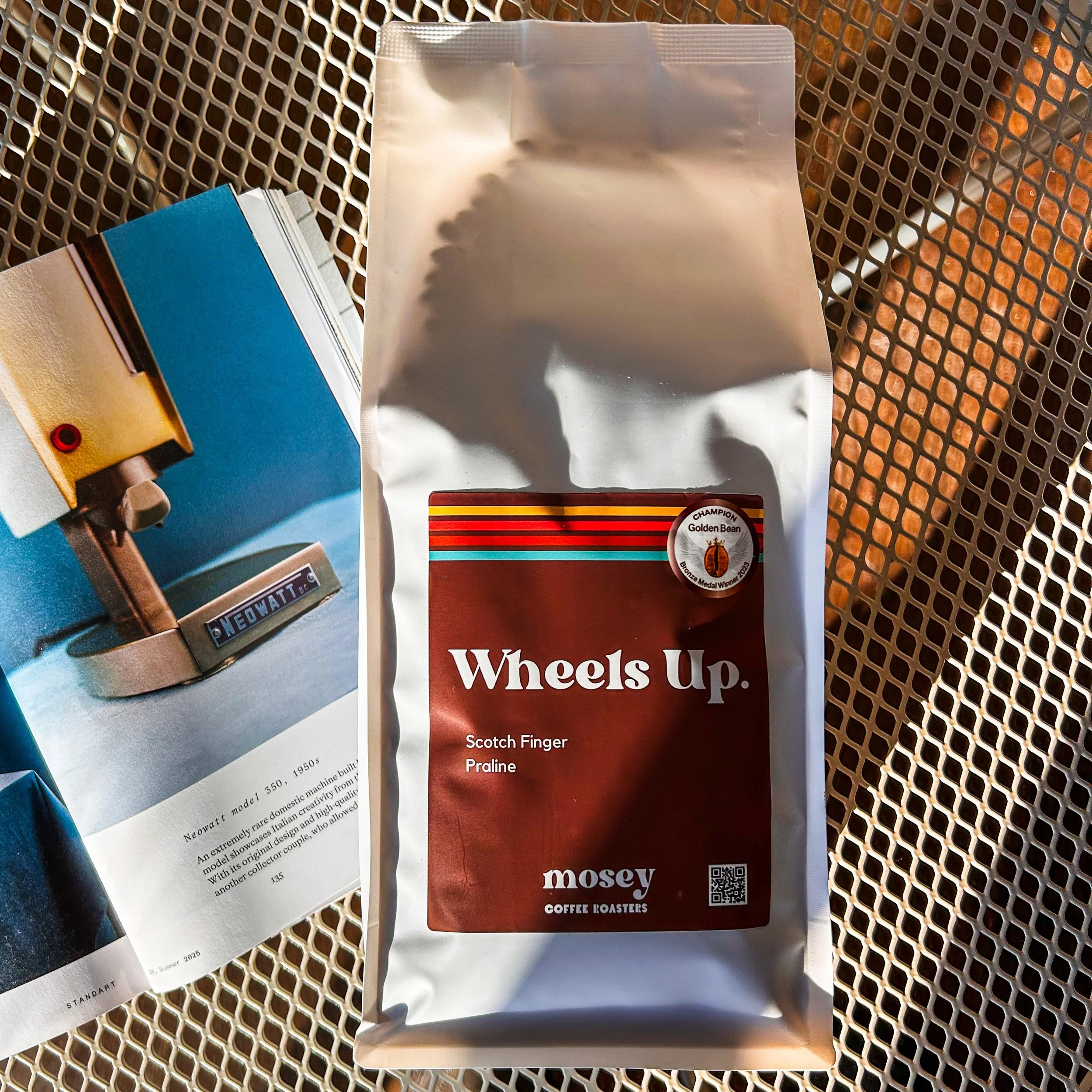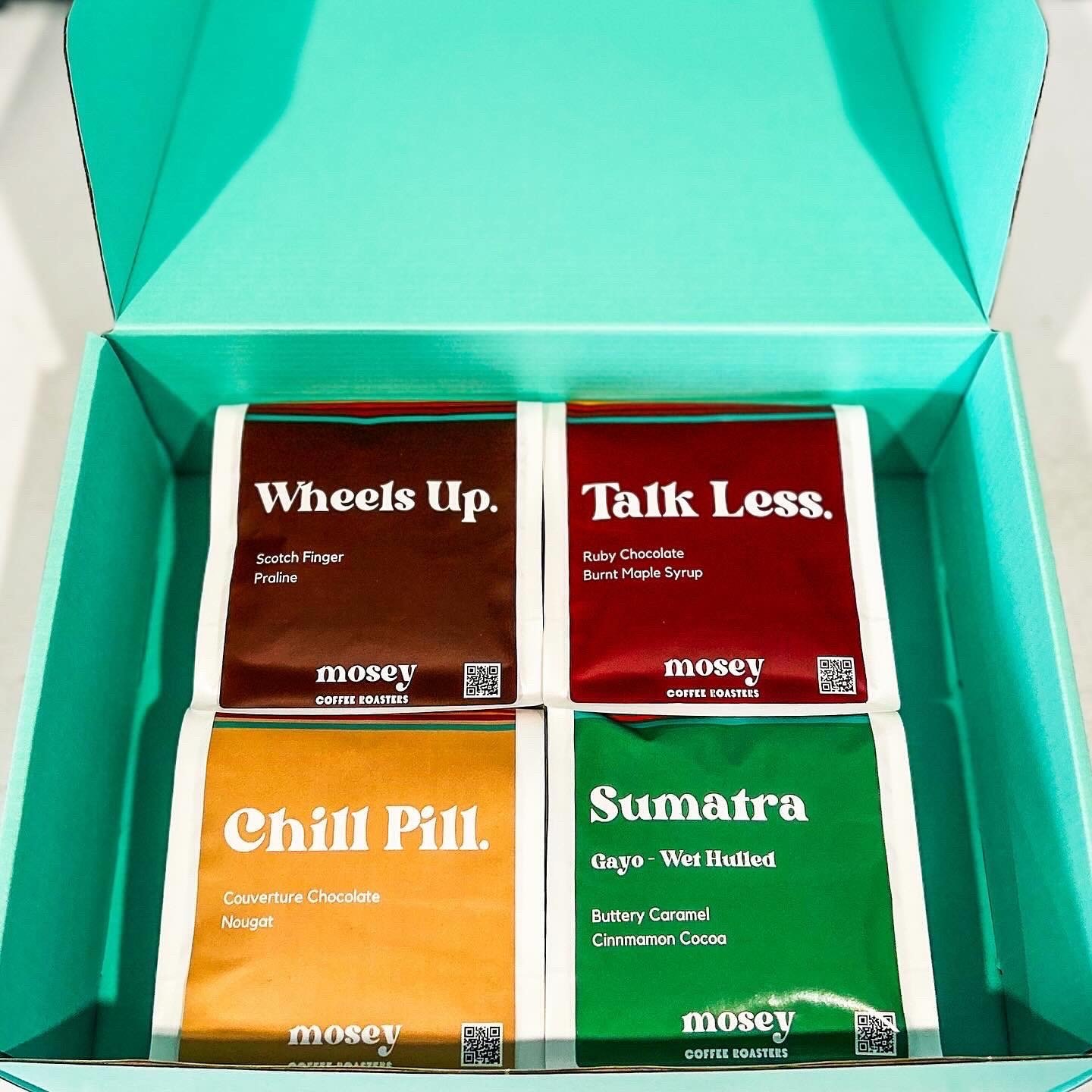Single Origin - Rwanda Musasa
We haven’t tried too many Rwandan Coffee’s quite like this beautiful washed Musasa. Instead of the usual spice and warmth you sometimes expect from a Rwandan, this coffee presents lovely delicate floral aromas along with citrus and a pleasant tart fruitiness.
Brewing Tips
We’re really enjoying this as our daily batch brew, with the cranberry notes really hitting up front. We use 60g of ground coffee to 1 litre of water using our Moccamaster batch brewer, making sure all the grounds are saturated in the first 30 seconds with some gentle excavation with a spoon. This makes enough for 3 x 12oz coffees for my wife and I to share.
As a V60, the lime is present through the middle with a lovely, delicate acidity that makes this vibrant coffee easy but very exciting to drink. We use 20g of coffee to 320g of water, again ensuring the grounds are evenly saturated in the bloom phase from 0 - 0:45 seconds. Avoid vigorous stirring to avoid over extraction.
With the Aeropress, we used 16g to 250g and went with a 2:30 extraction time before pressing the coffee out within 30 seconds. Just be sure to use a finer grind that filter. I used 6 clicks finer on our Commandante C40 Hand Grinder than the setting I use for a V60.
Musasa washing station provides up to six trainings annually for farmers in their region. These trainings, combined with selective handpicking, ideal microclimates and meticulous processing at the station, creates a coffee that is bursting with florals and citrus.
About this coffee
Musasa washing station sits at 1,526 meters above sea level in the high-altitude hills of the Congo Nile Trail - practically on the banks of Lake Kivu. The Trail features 227 km (141 miles) of beautiful landscapes, including rolling hills and clear water. The washing station began operations in 2013 and since then has gone from strength to strength, including a Cup of Excellence win in 2011.
Cultivation
1,750 growers deliver to Musasa, around 23% of whom are under the age of 35. Musasa sees these young growers, the youngest of whom is only 20, as the future of Rwandan coffee. Although farm sizes are small, at only around 0.18 hectares on average, farmers receive regular training in organic composting, renovation, harvesting techniques, and other agricultural practices that ensure optimal growth for their small farms. The utmost care is taken with quality from the very beginning.
Harvest and Post Harvest
All farmers delivering to Musasa station live within a 15 kilometer radius. After selectively hand-harvesting their coffee, they transport the cherry to the washing station using a variety of means. Cherry is then inspected and hand-sorted to remove any damaged cherries or under-ripe before they are weighed and loaded into the station’s pulper. Farmers receive a payment in line with the quality and quantity delivered.
Musasa uses a Pinhalense eco-pulper, which separates ripe and underripe/underweight cherries again, along with removing any debris remaining with the cherries. This pulper uses one cubic meter of water to process up to 20 tons, significantly reducing the environmental footprint of the washing station.
After pulping, coffee is delivered to the fermentation tanks to ferment for around 24 hours. After this, the coffee is thoroughly washed in clean water and all traces of mucilage are removed from the beans.
Then, coffee is delivered to one of the washing station’s 300 drying tables. Once here, parchment will be turned every 30 minutes initially and covered during the hottest part of the day. Drying usually takes an average of 1 to 2 months, though the time required varies depending on the climate at the time.
Coffee in Rwanda
Despite its turbulent history, today Rwanda is one of the specialty coffee world’s darlings – for good reason! Our sister company in Rwanda does an amazing job of bringing the best that Rwanda has to offer to roasters around the world.
German missionaries and settlers brought coffee to Rwanda in the early 1900s. Largescale coffee production was established during the 1930 & 1940s by the Belgian colonial government. Coffee production continued after the Belgian colonists left. By 1970, coffee had become the single largest export in Rwanda and accounted for 70% of total export revenue. Coffee was considered so valuable that, beginning in 1973, it was illegal to tear coffee trees out of the ground.
Between 1989 and 1993, the breakdown of the International Coffee Agreement (ICA) caused the global price to plummet. The Rwandan government and economy took a hard hit from low global coffee prices. The 1994 genocide and its aftermath led to a complete collapse of coffee exports and vital USD revenue, but the incredible resilience of the Rwandan people is evident in the way the economy and stability have recovered since then.
Modern Rwanda is considered one of the most stable countries in the region. Since 2003, its economy has grown by 7-8% per year and coffee production has played a key role in this economic growth. Coffee has also played a role in Rwanda's significant advancements towards gender equality. New initiatives that cater to women and focus on helping them equip themselves with the tools and knowledge for farming have been changing the way women view themselves and interact with the world around them.
Today, smallholders propel the industry in Rwanda forward. The country doesn’t have any large estates. Most coffee is grown by the 400,000+ smallholders, who own less than a quarter of a hectare. The majority of Rwanda’s coffee production is Arabica. Bourbon variety plants comprise 95% of all coffee trees cultivated in Rwanda.
About the Author
I’m Dave and I’m the owner of Mosey Coffee Roasters and That Coffee Van.
Having worked within the hospitality sector for more than 20 years, my relationship with coffee has always been a close one. From freeze dried instant to pour over Geishas, my coffee journey has been so inspiring to me and such a big part of my life. Coffee still continues to surprise and fascinate me and I’m always excited when the opportunity to try new coffees presents itself.
We created Mosey Coffee Roasters to roast, prepare and present coffee that we like to drink ourselves. We think you’ll enjoy it too. Nothing too crazy but not understated either. Delightful blends and elegant Single Origins. Something for everyone to keep in line with our motto.
Specialty. Coffee. Simply.










Bright acidity with notes of Blueberry Gelato, Apricot and Bergamot. Perfect for Espresso, Filter, Aero, French Press and Cold Brew.
Region - Wegida, Gedeo
Producer - Fikadu Mule
Varietals - Kurume
Processing - Natural
Altitude - 1990 masl